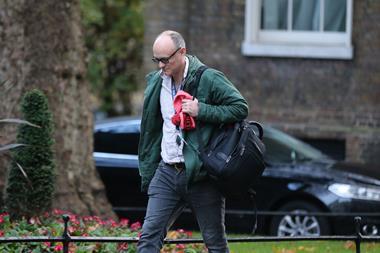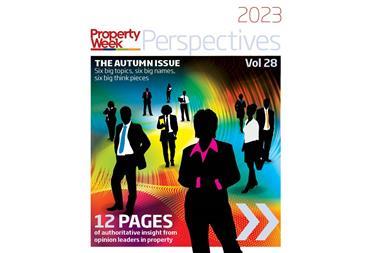Covid-19’s impact on real estate provided the most influential environmental impact on the sector. The change brought about by the global pandemic forced retailers, hotels and landlords to be resilient, flexible and creative.

As the industry emerges from lockdown restrictions, there now seems to be hope among property investors and for the real estate industry.
Until 2020, much attention was on the impact of Brexit and the uncertainty it brought; in previous surveys, it was considered a risk with the most influence on the real estate market. Combine this with the pandemic and the challenges were multiplied, particularly for those in hospitality and retail. Hotels closed their doors. Bricks-and-mortar retail came to a standstill. Pub and restaurant experiences were no longer in-person, and commercial rent moratoriums were in place. It was an unprecedented challenge, halting investment and business growth across the sector. However, as we emerge from these challenges, optimism and hope are now directing future plans for the industry as a whole.
Crowe has released its 2021 Real Estate Outlook Report. It measures the impact of the pandemic and asks key stakeholders what their strategy is to secure the future of their businesses.
With few aspects of the real estate economy left untouched by Covid-19, what does Crowe’s report reveal about the pandemic’s impact and long-term implications? The survey asked 99 respondents across all levels and all types of real estate business to review their challenges and give key insight into their optimism for future development.
More than 66% of respondents to the survey explained that economic uncertainty, concerns for consumer confidence and also the fallout from the pandemic were the most significant challenges their business faced in the past 18 months. Most respondents agreed that regional retail had been the worst affected sector, closely followed by offices in London.
Crowe’s report reflects a snapshot of positivity and opinion shows that despite the challenges faced, activity in real estate is certainly on the rise
As non-essential retailers were ordered to close during each of the lockdowns, high streets and shopping centres incurred a deficit of customers.
As online sales rose, retailers that did not have digital resources had to invest in website, mobile applications and logistics to stimulate sales. There are key sectors in real estate that capitalised from this move to digital, and online retail thrived during the pandemic. Crowe expects the continued growth of data centres and logistics parks to facilitate this demand.
Economic recovery is under way for real estate investment, as the survey shows that optimism remains for property investors. Insight confirms that 75% of respondents are not actively looking to change their real estate portfolio as a result of recent events. It was further revealed that 55% of respondents are optimistic and support the view that the industry will grow.
A further 42% expect their business to at least stay the same size. These results are in line with our predictions, as we witnessed a buoyant-based response from our 2019 survey, when the uncertainties of Brexit were the key business concern.
Creative solutions
While there is opportunity for growth, this is sustained by creative solutions for businesses entering new markets and appealing to new customers. Major retailers such as Sainsbury’s and John Lewis announced their own build-to-rent (BTR) development projects to see how they can participate in the residential sector, by creating properties that range from flats to four-bedroom homes on their excess land. We can expect to see further entrants into the market seeking innovative ways to bring new life into town centres.

We can also expect to see more BTR schemes being put forward. Developments are moving towards a hybrid mix of asset classes including flexible office space, retail and leisure, alongside residential. Outside space as well as local community retail have now become more valued due to the pandemic, so we expect to see developments being altered to reflect these underlying needs. Developers should focus on fulfilling the needs of local communities. Motivating communal economic growth has been highlighted by the government, improving trade and wellbeing at the forefront of property investment.
Government support
The government has provided many support measures to those who needed it during the pandemic. The Coronavirus Business Interruption Loan Scheme, business rate reliefs and, most notably, the furlough scheme have provided vital lifelines for job security and keeping businesses above water. Now, with funding gradually reducing, landlords and tenants need to innovate their buying and renting strategy.
In 2020, the government introduced legislation to prevent commercial property landlords from evicting or seizing any goods from businesses that could not pay rent, which has put some property owners in a difficult situation. More than 43% of respondents said it has become more difficult to secure finance in the past 12 months. The majority of finance has still been delivered by traditional bank finance (46%).
Furlough support withdrawal will play an instrumental role in industry recovery. Sectors where it has supported employment more than others, such as retail and hospitality, will anticipate how the government handles the debt infusion it has pushed into the wider economy to keep businesses afloat. We expect that the challenges of raising finance will continue for at least a further year as lenders re-adjust to the post-pandemic world and the various changes happening.
Obtaining planning permission for a property development can be complex. Some 14% of our respondents believe that planning reform should be high on the government’s priority list. A conventional housing development can take a number of years to get through the current planning system. The pandemic has increased the timescales for obtaining planning permission even further, at a time when housing demands have increased.
Technological advancements
Technology has benefited from an innovative real estate strategy. The sector is now advancing its technology in the form of cloud computing to handle data off-premises – the result of an effort to facilitate working from home arrangements. With the technology sector increasing its revenue during the pandemic, digitalisation for real estate businesses is becoming cheaper and more viable and transforming building practices. Almost a quarter (23%) of respondents believe that technology will be the next big thing to impact property. If we link this with sustainability, property developments are expected to optimise and be modernised. Offices can be integrated with technology to motivate productivity, reduce energy consumption and operational costs. Really, a push to become smart buildings.
Impact of tax
A third of respondents said the biggest tax barrier to growth and sustainability was the rising corporation tax rate. The proposed increase in the headline rate of corporation tax is significant – the last time the main rate was this high was in 2011, at 26%. This, an increasing complexity of the tax system and stamp duty land tax are what businesses believe to be the biggest tax barriers to growth.
The UK corporation tax rate will rise to 25% in April 2023, but in the interim, the chancellor has introduced a temporary ‘super-deduction’ capital allowance of up to 130% to promote investment in new plant and machinery between 1 April 2021 to 31 March 2023. This is a positive reinforcement for businesses looking to purchase new capital equipment or undertake fit-out work, effectively stimulating investment and financial planning.
The pandemic has brought challenges for all sectors in real estate, some with more stress than others. It has been a time of navigating financial difficulties and halted growth. There is a hill to climb for real estate, but with government support, innovation and creativity, the hill is becoming a little less steep. Growth and development are on the horizon. Technology is breaking traditional barriers for the industry and opportunity is back on the radar for property investment. Crowe’s report reflects a snapshot of positivity and opinion shows that despite the challenges faced, activity in real estate is certainly on the rise.

About Crowe
Crowe UK is a leading audit, tax, advisory and risk firm with a national presence to complement our international reach. We are an independent member of Crowe Global, one of the top 10 accounting networks in the world. With exceptional knowledge of the business environment, our professionals share one commitment, to deliver excellence.
We provide audit, tax compliance and tax advisory services to a wide variety of private and listed real estate groups; helping them to make smart decisions that provide lasting value.
The end is in sight
- 1
- 2
- 3
- 4
- 5
- 6
 Currently reading
Currently readingFoundations for change: an industry on the rise
- 7
- 8





































No comments yet